Rob Bignell's Blog, page 339
April 1, 2014
What's the difference between ‘mood’/‘tone’?
Two ideas 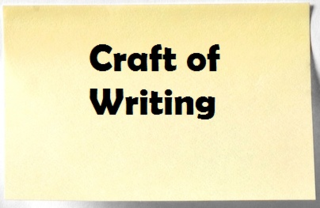 closely related to voice are mood and tone.
closely related to voice are mood and tone.
In every story, the author creates an emotional atmosphere – so that a reader might say, “The story felt very solemn” or “The story left me feeling upbeat.” The emotional reaction that the story elicits is its mood.
Each story also expresses an emotional climate – that is, after completing it the reader might say, “The writer seemed very angry” or “The writer presented a depressing view of the world.” Tone is the emotion the author uses to approach the story’s theme.
In a sense, mood is how the story’s wording combines to elicit an emotional reaction from the reader while tone is the emotional approach that the author takes. Consider this passage from a science fiction story:
Captain Ashling waved his fist into the air and cheered as his gaze turned skyward to Venus. The planet shined bright as a harbor light. His ship’s name would go down in history with the Santa Maria, The Spirit of St. Louis and the Eagle.
The paragraph’s mood might be described as “exciting” because the reader shares with Captain Ashling his thrill at being given an important mission of exploration. The tone might be described as “uplifting,” because the author views exploration as a grand, historical adventure.
Creating mood and tone involve a complex array of techniques that like voice include diction (word choice, sentence structure), narrative drive (pacing), and color (descriptive details).
Mood and tone are not voice, however. Instead, mood and tone are unique to each story whereas voice marks the author’s style over several works. Voice is what makes one writer unique from other writers over the course of a career (Though that voice may shift – say be angry in youth but then somber in middle age and finally pensive in old age). In contrast, mood and tone apply more to a specific novel or short story. So an author whose voice tends to be “idealistic” might write one story in which his tone is “utopian” while another story is “optimistic.”
Need an editor? Having your book, business document or academic paper proofread or edited before submitting it can prove invaluable. In an economic climate where you face heavy competition, your writing needs a second eye to give you the edge. I can provide that second eye.
Related articles
 How to overcome annoying writer's block
How to overcome annoying writer's block Maintain tone by avoiding subjective tension
Maintain tone by avoiding subjective tension
March 31, 2014
Editing clients collaborate on, publish first novel
Two recent 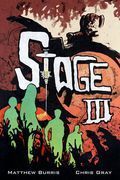 editing clients of mine, Matthew Burris and Christopher Gray, have published their first novel, “Stage III.” The novel tells the story of Richard Griffon and Elijah Parrish, two down-on-their-luck private detectives who barely scrape by on meager earnings they get from chasing cheating spouses. Desperate for cash, they take on what they think is a routine job to track down Angela, the daughter of a wealthy businessman, and her bodyguard Talia. Angela is a spoiled and bored socialite who drifts aimlessly from one party to another, in and out of rehab. What they don’t know is that the daughter has accidentally stumbled onto a conspiracy of unimaginable proportions. Her world will be turned upside down when she discovers her father has been experimenting with a dangerous virus. “Stage III” is available as a Kindle ebook.
editing clients of mine, Matthew Burris and Christopher Gray, have published their first novel, “Stage III.” The novel tells the story of Richard Griffon and Elijah Parrish, two down-on-their-luck private detectives who barely scrape by on meager earnings they get from chasing cheating spouses. Desperate for cash, they take on what they think is a routine job to track down Angela, the daughter of a wealthy businessman, and her bodyguard Talia. Angela is a spoiled and bored socialite who drifts aimlessly from one party to another, in and out of rehab. What they don’t know is that the daughter has accidentally stumbled onto a conspiracy of unimaginable proportions. Her world will be turned upside down when she discovers her father has been experimenting with a dangerous virus. “Stage III” is available as a Kindle ebook.
Need an editor? Having your book, business document or academic paper proofread or edited before submitting it can prove invaluable. In an economic climate where you face heavy competition, your writing needs a second eye to give you the edge. I can provide that second eye.
Related articles
 Motivate yourself to write this year!
Motivate yourself to write this year! Add ticking clock to create sense of urgency
Add ticking clock to create sense of urgency
March 30, 2014
Five Great Quotes about the Business of Writing
“Coleridge was 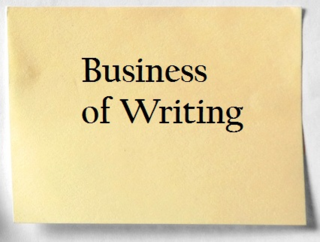 a drug addict. Poe was an alcoholic. Marlowe was killed by a man whom he was treacherously trying to stab. Pope took money to keep a woman’s name out of a satire then wrote a piece so that she could still be recognized anyhow. Chatterton killed himself. Byron was accused of incest. Do you still want to a writer – and if so, why?” – Bennett Cerf
a drug addict. Poe was an alcoholic. Marlowe was killed by a man whom he was treacherously trying to stab. Pope took money to keep a woman’s name out of a satire then wrote a piece so that she could still be recognized anyhow. Chatterton killed himself. Byron was accused of incest. Do you still want to a writer – and if so, why?” – Bennett Cerf
“There’s no money in poetry, but then there’s no poetry in money either.” – Robert Graves
“Beware of self-indulgence. The romance surrounding the writing profession carries several myths: that one must suffer in order to be creative; that one must be cantankerous and objectionable in order to be bright; that ego is paramount over skill; that one can rise to a level from which one can tell the reader to go to hell. These myths, if believed, can ruin you. If you believe you can make a living as a writer, you already have enough ego.” – David Brin
“Writing is not a genteel profession; it’s quite nasty and tough and kind of dirty.” – Rosemary Mahoney
“Almost anyone can be an author; the business is to collect money and fame from this state of being.” – A. A. Milne
Need an editor? Having your book, business document or academic paper proofread or edited before submitting it can prove invaluable. In an economic climate where you face heavy competition, your writing needs a second eye to give you the edge. I can provide that second eye.
<A HREF="http://ws-na.amazon-adsystem.com/widg... Widgets</A>Related articles
 Five great quotations about poetry
Five great quotations about poetry
Five Great Quotes about the Business of Writing
“Coleridge was  a drug addict. Poe was an alcoholic. Marlowe was killed by a man whom he was treacherously trying to stab. Pope took money to keep a woman’s name out of a satire then wrote a piece so that she could still be recognized anyhow. Chatterton killed himself. Byron was accused of incest. Do you still want to a writer – and if so, why?” – Bennett Cerf
a drug addict. Poe was an alcoholic. Marlowe was killed by a man whom he was treacherously trying to stab. Pope took money to keep a woman’s name out of a satire then wrote a piece so that she could still be recognized anyhow. Chatterton killed himself. Byron was accused of incest. Do you still want to a writer – and if so, why?” – Bennett Cerf
“There’s no money in poetry, but then there’s no poetry in money either.” – Robert Graves
“Beware of self-indulgence. The romance surrounding the writing profession carries several myths: that one must suffer in order to be creative; that one must be cantankerous and objectionable in order to be bright; that ego is paramount over skill; that one can rise to a level from which one can tell the reader to go to hell. These myths, if believed, can ruin you. If you believe you can make a living as a writer, you already have enough ego.” – David Brin
“Writing is not a genteel profession; it’s quite nasty and tough and kind of dirty.” – Rosemary Mahoney
“Almost anyone can be an author; the business is to collect money and fame from this state of being.” – A. A. Milne
Need an editor? Having your book, business document or academic paper proofread or edited before submitting it can prove invaluable. In an economic climate where you face heavy competition, your writing needs a second eye to give you the edge. I can provide that second eye.
<A HREF="http://ws-na.amazon-adsystem.com/widg... Widgets</A>Related articles
 Five great quotations about poetry
Five great quotations about poetry Writing your nonfiction book's bibliography
Writing your nonfiction book's bibliography
March 29, 2014
Fanfic not so bad if used for growing as a writer
With the immense 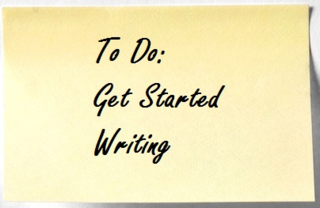 popularity of television shows, motion pictures, book series, and video games, among the most popular type of stories that beginning writers pen is fanfic, or fan fiction. These are stories that use another author’s universe. They are quite popular in the science fiction and fantasy genres.
popularity of television shows, motion pictures, book series, and video games, among the most popular type of stories that beginning writers pen is fanfic, or fan fiction. These are stories that use another author’s universe. They are quite popular in the science fiction and fantasy genres.
Generally, fanfic is held in low regard among serious writers and publishers. Fan fiction lacks originality, and much of it tends to be amateurish. Even if the writing is of high quality (and some of it is), trying to profit from it violates intellectual property and copyright laws (And if you publish for profit, you’re certain to be sent a cease and desist letters from the fiction universe’s owners.).
Still, fanfic is a good way to cut one’s teeth. For someone learning to master the craft of writing, rather than be overwhelmed by the vast number of intricate variables needed for a story, the characters, setting, and even basic plot structure already is there. This allows the writer to focus on style matters (such as active voice, writing tightly, description, etc.). And if the author conducts some analysis while writing, he can learn how quality stories and characters are constructed.
The real benefit of a fanfic, though, might be as a brainstorming session for a short story or novel that is original. Consider the analogy of screenwriters who submit a story outline to a television show. If the television producer’s reject it, some screenwriters will restructure the story into their own tale. The writing then become an exercise in creating new characters and settings so the story bears no resemblance to the show the outline was written for. In much the same way, fanfic can be rewritten for a new universe.
Need an editor? Having your book, business document or academic paper proofread or edited before submitting it can prove invaluable. In an economic climate where you face heavy competition, your writing needs a second eye to give you the edge. I can provide that second eye.
Related articles
 Five Great Quotations about Writing SF
Five Great Quotations about Writing SF Avoid 'As you know' Syndrome in fiction
Avoid 'As you know' Syndrome in fiction Five Great Quotations about the Power of Writing
Five Great Quotations about the Power of Writing
March 28, 2014
Why bookstores don't carry self-published books
You’ve just  self-published your book and call up your local bookstore to see if you can bring down a few copies for them to stock and sell. Then you do a double take when the manager refuses to carry your book and quickly dismisses you.
self-published your book and call up your local bookstore to see if you can bring down a few copies for them to stock and sell. Then you do a double take when the manager refuses to carry your book and quickly dismisses you.
You’re local author, so surely they should be interested in your book, right?
Unfortunately, you’ve just run smack into the economics of corporate bookstores. The reality is that bookstores don’t operate like you might think they would. The store manager (or someone under him) doesn’t select the books that he thinks locals will want to buy and stocks his store accordingly, placing the books of highest interest near the entry.
The reality is that chains sell their space to publishers. Just as a newspaper or magazine will charge more for ads appearing on the most looked at pages, so bookstores do the same. The reason books are located at certain spots in the store is because publishers pay for shelf location.
“Okay, so I’m not at the entrance or on an end cap,” you might be saying, “certainly they could just stick my book on a shelf in the appropriate section.”
Probably not. That’s because you’ve run afoul of the wholesale discount. This is the percentage of the retail cost that the author or publisher gives away to those who distribute and sell his books. So, if your book sells for $10 retail, you could offer a 40 percent wholesale discount, which means whoever distributes and sells your books gets $4 of every book sold. To make book purchasing easier, chain bookstores buy all of their titles from a single wholesaler/distributor, such as Ingram Book. If Ingram offers a 40% percent discount, that means the bookstore gets to keep every $4 of every $10 book sold. As you’re not a distributor offering a discount – or because you’re not the primary wholesaler a chain purchases books from – you’re cut out.
But do you really want your book in a chain anyway? Having a book in a local Barnes and Noble or Books A Million might be more about ego and bragging rights than sales. After all, as many writers say, book stores are great places to look at books but lousy places to sell them.
The reality is that most of your book sales will be done online. You easily can get onto Amazon.com, Barnes and Noble’s website, and a plethora of other bookseller’s pages.
If you do want a brick and mortar store to carry your book, shift your thinking from big chains. For example, ma and pa bookstores often want to carry local authors and titles of regional interest. They’ll usually buy your books outright or provide you the opportunity to set up a table as a visiting author. Also, think alternatives to bookstores. For example, outfitters are willing to carry my hiking books, especially those that are not chains and if my book somehow mentions their community. If you’ve written a book about collecting toys, see if locally owned antique shops will carry them.
Need an editor? Having your book, business document or academic paper proofread or edited before submitting it can prove invaluable. In an economic climate where you face heavy competition, your writing needs a second eye to give you the edge. I can provide that second eye.
<A HREF="http://ws-na.amazon-adsystem.com/widg... Widgets</A>Related articles
 Don't learn this in stages: Fazed vs. phased
Don't learn this in stages: Fazed vs. phased How to embed fonts in a pdf of your manuscript
How to embed fonts in a pdf of your manuscript Editing client's new book charts infant's journey
Editing client's new book charts infant's journey Client publishes her first novel, set in Africa
Client publishes her first novel, set in Africa Spooner, Wis., bookstore carrying hiking book
Spooner, Wis., bookstore carrying hiking book
March 27, 2014
Potential disclaimers for your title page
Sometimes when 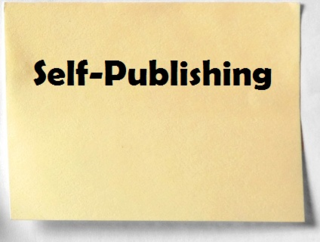 self-publishing a book, you’ll want to include a disclaimer on your title page. A disclaimer is a legal-sounding statement that aims to protect you from lawsuits by saying that you are not liable or responsible for anything the reader does as a consequence of reading your advice. For example, if a reader follows first-aid tips you provide in a hiking book, you might run a disclaimer that releases you from responsibility for any injuries that occur after a reader has attempted to follow your guidelines.
self-publishing a book, you’ll want to include a disclaimer on your title page. A disclaimer is a legal-sounding statement that aims to protect you from lawsuits by saying that you are not liable or responsible for anything the reader does as a consequence of reading your advice. For example, if a reader follows first-aid tips you provide in a hiking book, you might run a disclaimer that releases you from responsibility for any injuries that occur after a reader has attempted to follow your guidelines.
The problem then, is to come up with a disclaimer that is appropriate for your book. Fortunately, you can put the legal departments of big publishers to work for you by examining the disclaimers used in several published books similar to your own. After reading a few, pen a disclaimer that is a good approximation of what should appear in your book.
Following are some come common disclaimers you might use.
Advice, how-to
Although the author and publisher have made every effort to ensure that the information in this book was correct at press time, the author and publisher do not assume and hereby disclaim any liability to any party for any loss, damage, or disruption caused by errors or omissions, whether such errors or omissions result from negligence, accident, or any other cause.
Business, financial advice
The information contained within this book is strictly for educational purposes. If you wish to apply ideas contained in this book, you are taking full responsibility for your actions.
Health
This book is not intended as a substitute for the medical advice of physicians. The reader should regularly consult a physician in matters relating to his/her health and particularly with respect to any symptoms that may require diagnosis or medical attention.
Memoir, autobiography
Some names and identifying details have been changed to protect the privacy of individuals.
OR
This story is based on actual events. In certain cases incidents, characters and timelines have been changed for dramatic purposes. Certain characters may be composites, or entirely fictitious.
Novels, short story anthology
This is a work of fiction. Names, characters, businesses, places, events and incidents are either the products of the author’s imagination or used in a fictitious manner. Any resemblance to actual persons, living or dead, or actual events is purely coincidental.
Sports, training
The information in this book is meant to supplement, not replace, proper (name sport) training. Like any sport involving speed, equipment, balance and environmental factors, (name sport) poses some inherent risk. The authors and publisher advise readers to take full responsibility for their safety and know their limits. Before practicing the skills described in this book, be sure that your equipment is well maintained, and do not take risks beyond your level of experience, aptitude, training, and comfort level.
Need an editor? Having your book, business document or academic paper proofread or edited before submitting it can prove invaluable. In an economic climate where you face heavy competition, your writing needs a second eye to give you the edge. I can provide that second eye.
<A HREF="http://ws-na.amazon-adsystem.com/widg... Widgets</A>Related articles
 What needs to go on your book's title pages
What needs to go on your book's title pages Editing client releases short story anthology
Editing client releases short story anthology
March 26, 2014
Don’t learn this in stages: Fazed vs. phased
Hopefully you’ll 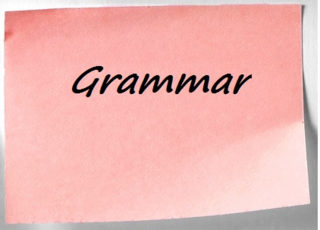 be able to quickly learn the difference between the words fazed and phased.
be able to quickly learn the difference between the words fazed and phased.
Fazed is a verb meaning to disturb or to cause one to feel disconcerted: Charlie was not fazed by his girlfriend’s temper-tantrum.
Phased is to carry out a plan in gradual steps: The new computer software will be phased in over the next several months.
If you can’t remember the difference, hopefully you’re editor won’t be fazed (er, bothered) by this.
Need an editor? Having your book, business document or academic paper proofread or edited before submitting it can prove invaluable. In an economic climate where you face heavy competition, your writing needs a second eye to give you the edge. I can provide that second eye.
<A HREF="http://ws-na.amazon-adsystem.com/widg... Widgets</A>
Related articles
 Time to get it right: Past vs. passed
Time to get it right: Past vs. passed Do the right thing: Altar vs. alter
Do the right thing: Altar vs. alter Out, error, out! Cleanup vs. clean up vs. clean-up
Out, error, out! Cleanup vs. clean up vs. clean-up
March 25, 2014
Make your writing more palatable via its texture
One of 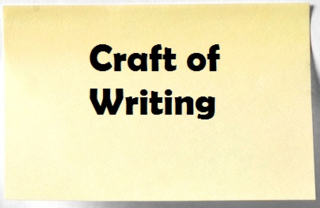 the pleasures of eating is the texture of your food. It may be the crunchiness of a cereal or the silkiness of a cream filling. We come with expectations about what a food’s texture will be, and that directly affects our perception of its taste.
the pleasures of eating is the texture of your food. It may be the crunchiness of a cereal or the silkiness of a cream filling. We come with expectations about what a food’s texture will be, and that directly affects our perception of its taste.
In much the same way, one of the pleasures of reading is the texture of the writing. It may be the crispness of the sentences or the power of an image. Readers come to your story with expectations – based on their past experiences with your writing, based on the genre you’re working in, based on variables such as their mood – and that affects their perception of your writing’s quality.
In short, your word and image choices combine to create “texture.” The more palatable your texture is, the more likely readers will stick with your writing and pick up another one of your books.
How can you create “texture” in your books? The answer involves mastering the craft of writing.
To make crisper sentences, choose the right words, employ tight writing, eliminate ambiguity, cut adverbs and repetition and clichés, vary sentence length and rhythm, use active voice, avoid overused verbs, and stick to one verb tense.
To make a more powerful image, be descriptive by appealing to various senses, integrate symbolism and allusions into, and avoid purple prose as well as pushbutton words.
Need an editor? Having your book, business document or academic paper proofread or edited before submitting it can prove invaluable. In an economic climate where you face heavy competition, your writing needs a second eye to give you the edge. I can provide that second eye.
Related articles
 Vary syntax to give writing flavor, texture
Vary syntax to give writing flavor, texture Five style issues to watch for in your story
Five style issues to watch for in your story Strengthen writing by replacing adverbs
Strengthen writing by replacing adverbs Avoid using weak pushbutton words in story
Avoid using weak pushbutton words in story Tighten writing by cutting begin fallacy
Tighten writing by cutting begin fallacy
March 24, 2014
Avoid violating chronology when plotting story
Unless you’re 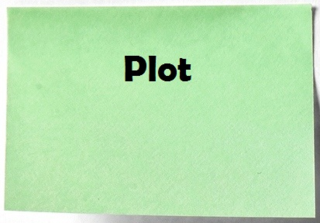 a deft writer or have one incredible editor, resist the urge to shift back and forth in time from scene to scene. Instead, tell the story as it unfolds chronologically. That is, present the events in the sequence that they would occur.
a deft writer or have one incredible editor, resist the urge to shift back and forth in time from scene to scene. Instead, tell the story as it unfolds chronologically. That is, present the events in the sequence that they would occur.
Usually violating chronology confuses readers. That’s because each time frame in a story contains its own milieu. For example, a story set in 1979 probably will have characters talking about or affected by gas shortages, inflation and the Equal Rights Amendment while very few people at all use computers in their workplace, and no one has a cell phone. In contrast, a story set in 1999 probably will have characters talking about or affected by gas below a dollar in price, low unemployment, and universal health care; a majority of workers use computers in their workplace, and many have cell phones or at least pagers. If you constantly shift between these two time frame, readers may begin to wonder why the characters don’t use their cell phone to get out of a jam in the 1979 scene or how they’re able to easily obtain gas to drive wherever they like in the 1999 scene because keeping track of what year the story is occurring can be difficult.
This doesn’t mean that such a story can’t work. Many good novels violate chronology. But if you’re going to risk that, doing so should make the story more dramatic or help clarify a character or theme.
Of course, sometimes we need to add a scene that occurs in our story’s timeline before some of those we’ve written. Rather than restructure the story, we might include it as a flashback or relate it as exposition in conversation between two people.
Keep flashbacks to a minimum, however. What makes the flashback powerful is that it is a special, powerful moment that unveils significant information about the character. Utilize flashbacks too many times, and the moments seize to be special; the reader might even wonder why those flashbacks weren’t simply organized chronologically.
Resist exposition as well. A quick phrase or even sentence in dialogue is passable, but avoid writing a long passage in which a character reiterates a past event as if he were a news anchor or someone reading aloud from an encyclopedia.
On a more line-by-line level of writing, present details in scenes as they occur chronologically. When not doing so, you’re using a rear-view mirror description, in which an object is described only after it’s been part of the action. For example, He slid into the cave hole that his foot had just felt. This type of writing allows the reader to see the setting only after the character has interacted with it – in short, it’s like looking at a landscape through a rear-view mirror.
Need an editor? Having your book, business document or academic paper proofread or edited before submitting it can prove invaluable. In an economic climate where you face heavy competition, your writing needs a second eye to give you the edge. I can provide that second eye.
<A HREF="http://ws-na.amazon-adsystem.com/widg... Widgets</A>
Related articles
 Avoid dead narrator plot gimmick in story
Avoid dead narrator plot gimmick in story Avoid 'As you know' Syndrome in fiction
Avoid 'As you know' Syndrome in fiction



